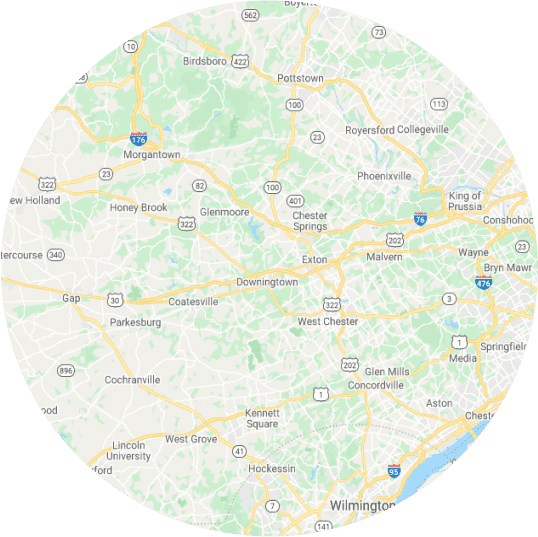
|
Getting your Trinity Audio player ready...
|
Are you searching for ways to enhance the energy efficiency of your home’s heating and cooling systems? While there are many ways to improve your existing system, you may be interested in learning about how a heat pump can provide low-cost and environmentally friendly air conditioning and heating.
Heat pumps have emerged as leaders among the growing list of energy-efficient home HVAC options and are renowned for their versatility.
If your heating system or AC has experienced a drop in performance, and you’ve noticed increasing monthly utility bills, it’s worth learning about how a heat pump functions. Determining whether installing one is the right decision for your home can pay off for years to come.
Heat pumps are unique in that they are one system that heats and cools your home, capable of replacing both your air conditioner and furnace or boiler. While they’ve seen extensive growth in popularity, many homeowners have yet to consider this option.
At Mattioni, we understand the nuances of why you should, or shouldn’t, install a heat pump in your home. We’ve installed many heat pumps in homes throughout the Greater Philadelphia area and can help you explore the option as you search for your next heating or cooling system.
This article will help you understand the different types of heat pumps, how they function, as well as their strengths and weaknesses, giving you everything you need to determine if they are right for you.
How Does a Heat Pump Work?
A heat pump functions virtually the same as a central AC unit to cool your home, starting with the indoor unit that absorbs heat through an evaporator coil. That heat is then sent to the outdoor unit through a refrigerant line circulated by a compressor, and released through a condenser coil. The refrigerant continues circulating, repeating the process and cooling your home along the way.
Heat pumps’ distinguishing feature is their ability to reverse this flow of heat transfer to absorb heat from outside and deliver it indoors. They provide entirely electric heating, a significantly more efficient choice than traditional combustion-based heating systems, like oil and propane.
Heat Pump System Types
Much like traditional central AC and heating systems, heat pumps have the following run-speed abilities:
- Single-Stage Heat Pumps: Runs at either 0% or 100%; offers heating and cooling with some gaps in comfort at a lower efficiency rating and a lower price point.
- Two-Stage Heat Pumps: Has an additional run speed of around 65%, increasing heating and cooling comfort, efficiency, and price.
- Variable-Speed Heat Pumps: Can run at virtually any speed between 30% and 100% for maximum comfort and efficiency, at a higher price point.
In heating mode, heat pumps can draw their heat from a few different sources. The most common type of heat pump is called an air-source heat pump.
Air-Source Heat Pump
Air-source heat pumps reverse their refrigerant’s flow to heat your home, and each coil swaps from collecting heat to releasing it, or vice versa. Cold-weather refrigerants use ambient outdoor air as a heat source, even during cold winter days.
Like traditional heating and cooling systems, heat pumps utilize a blower motor to generate the airflow that distributes conditioned air throughout your home. If you’re installing a heat pump without a furnace in your home, you’ll have to install an air handler, which will house the blower motor.
While they do function as a primary air conditioning and heating source, heat pump owners that don’t have a furnace or boiler often install backup heating, like an electric heat strip kit, to be used when outdoor temperatures plummet to extreme lows.
Air source heat pumps are the most common due to their relatively simple installation (virtually the same as a central AC unit) and their versatility to work well in most homes.
Ground-Source Heat Pumps
Also referred to as geothermal, ground-source heat pumps are installed and draw their heat underground, where the temperature is more consistently between 50° and 60°. They’re highly efficient because they don’t have to make up for drastic temperature swings as air-source heat pumps do during cold winter days.
Despite higher efficiency levels, ground-source heat pumps are less common than air-source because they don’t work on smaller lots and, due to the complexity of installation, they can be substantially more expensive. Don’t hesitate to ask any questions about geothermal heat pumps with your HVAC professional.
Water-Source Heat Pumps
Water-source heat pumps are extremely rare since they require a body of water on your lot, however, they are easier to install than geothermal systems and experience similarly high efficiency levels.
How do You Measure the Efficiency of Heat Pumps?
Heat pumps are renowned for their energy efficiency. Unlike traditional heating systems that generate heat by burning fuel, heat pumps only move heat, which requires significantly less energy.
Since they both heat and cool your home, heat pumps get two efficiency scores. SEER2 and HSPF2 track heat pumps’ energy usage for cooling and heating respectively.
What is SEER2?
SEER2, Seasonal Energy Efficiency Ratio, is the industry standard measurement for any home cooling system. Where HSPF2 measurements track the energy used to deliver heat to your home, SEER2 reports its efficiency when removing it.
How Efficient are Heat Pumps in Cooling Mode?
The SEER2 score of heat pumps is more consistent throughout each cooling season, and more closely resembles the scores of central AC units, as the process is virtually identical.
What is HSPF2?
HSPF2, or Heating Seasonal Performance Factor, measures the efficiency of heating delivered to your home by a heat pump. HSPF2 ratings are calculated by dividing the total BTUs (British Thermal Units) delivered to your home by the total expenditure of energy used by the system, measured in kilowatt-hours (kWh).
- For example, a heat pump with 10 HSPF2 will deliver 10,000 BTUs of heat per kWh.
How Efficient are Heat Pumps in Heating Mode?
Since air-source heat pumps use ambient outdoor air as a heat source, their efficiency is tied to the weather. During the earliest and latest parts of the heating season, when the gap between outdoor and indoor temperatures is less significant, heat pumps experience some of the most efficient heating available by any system.
This translates to big savings on monthly utility bills for long stretches of the year.
Technology advancements, including cold-weather refrigerants, have improved the energy efficiency of heat pumps during the coldest days. However, since they must still overcome larger gaps in indoor and outdoor temperatures, energy ratings are closer to those of traditional heating systems during this part of the year.
Ground-source heat pumps see more consistent efficiency ratings throughout the heating season as underground temperatures don’t fluctuate nearly as much as air.
What Are the Pros and Cons of a Heat Pump?
Like every heating and cooling system, heat pumps have their own set of strengths and weaknesses:
Pros:
- Leading Energy Efficiency: High HSPF2 ratings reflect the optimal energy efficiency of electric heating.
- Lower Operational Costs: Eliminates dependency on fuels like oil, propane, and natural gas.
- Versatility: Ability to both heat and cool a home.
- Environmentally Friendly: Reduced carbon footprint and reliance on fossil fuels.
Cons:
- Initial Cost: Heat pumps can potentially have higher upfront installation costs.
- Climate Sensitivity: Air source heat pumps can be less efficient in extremely cold temperatures.
- Diminished Heating Output: Heat pumps will typically have a lower BTU output compared to furnaces and boilers.
- Installation Requirements: Electrical updates to your panel box may also need to be made depending on the requirement differences from your previous system. Ground and water source heat pumps may also not be a feasible option for many homeowners.
Why Buy a Heat Pump?
Investing in a heat pump offers numerous benefits, making it a compelling choice for modern homeowners:
- Cost Savings: Although the initial installation can be pricey, the operational savings over time can offset this initial expense, providing long-term financial benefits.
- Comfort: Heat pumps provide consistent and reliable heating and cooling, ensuring year-round comfort.
- Sustainability: By using renewable energy sources, heat pumps contribute to reducing greenhouse gas emissions and promoting sustainable living.
- Increased Home Value: Homes equipped with energy-efficient systems like heat pumps often have higher market values.
A heat pump is a viable option if you’re looking to replace your central AC unit with a system that can lower your carbon footprint while saving you money on utility bills. If you already have a heat pump, but it’s getting close to the end of its lifespan (10-12 years) It’s also a great choice to stick with this system as newer models continue to see efficiency improvements.
When Not to Buy a Heat Pump?
While not as expensive as some heating and cooling systems, heat pumps do typically come at a higher price point than an air conditioner alone. If you’re working on a tight budget and are only looking to address your home’s AC, then installation costs must be factored into your considerations.
Those homeowners who already have a furnace or boiler that’s still operating at high performance levels may be better-suited by only replacing their air conditioner.
Electric heating is also not as effective as oil or gas heating at producing high BTU levels. While they’re capable of being relied upon as a primary source of heat, some people may prefer the burst of heat produced by a furnace or boiler. For these situations, heat pumps may be a better fit as a secondary heating source.
Is a Heat Pump a Good Fit for My Home?
Heat pumps combine efficiency, environmental consciousness, and practicality in a versatile home heating and cooling solution.
By understanding how they function and their strengths and weaknesses, you can make an informed decision about whether a heat pump is the right choice for your home.
The HVAC team at Mattioni encourages anyone interested in installing a heat pump to speak with a professional about your current heating and cooling systems to determine if a heat pump makes sense for you.
As the push for greener energy solutions continues, installing a heat pump could be a wise investment for a sustainable future that saves you money along the way.
To learn more about heat pumps call the Mattioni team at 610-400-8510 or schedule an appointment online.









